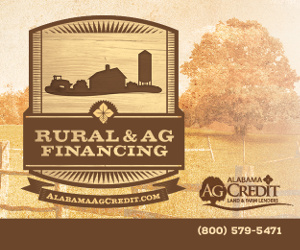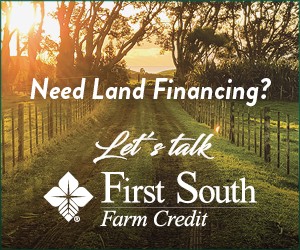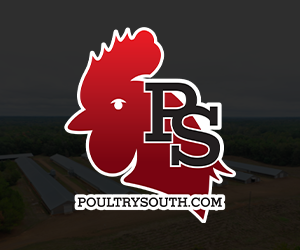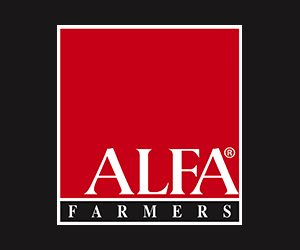From Our Blog
The Land Show Episode 168
The Land Show
December 31st, 2018
David Pursell, CEO of Pursell Farms, shares about the long family history and great things happening at Pursell Farms near Sylacauga, AL. Russ Walters gives the Farmland Report. Rick Bourne talks about opening weekend of dove season. Tim Baker delivers the Outdoor Update.
Transcription
Here’s the transcription of the first segment.
Dave Milton: Hey, everybody. Welcome to The Land Show with Dave and Johnny. I’m here in Montgomery, Alabama, on this kind of cloudy Saturday morning with my co-host and good friend Johnny B. Goode. Johnny B., how you doing?
Jonathan Goode: I’m good, brother. Good to be back in the studio with you.
Dave Milton: I tell you what, man, first and foremost, our prayers and thoughts and prayers go out to the folks in the Carolinas and parts of Georgia … Big storm. So we just know a lot of folks have come west, and folks are sheltering friends and relatives here in Alabama and Tennessee and places like that, so it’s that time of year.
Jonathan Goode: Yeah. For sure. And we wish you a speedy recovery and hope you’re able to get home. I went through this, in fact, that’s one of the reasons we moved back to Alabama right after Hurricane Katrina in 2005, and man, it doesn’t matter if it’s a Category 3 or 4, they’re all big and it just takes a while to recover.
Dave Milton: It does.
Jonathan Goode: And we’ve been blessed, man. We’ve been almost 7, 8, 10 years without a major hurricane hitting us, so we’re mighty fortunate.
Dave Milton: Well, that’s true. And I know y’all had some … We had dove season open up this past weekend. I talked to a lot of folks that had birds, and then the weather kind of shifted, and then it kind of blew them out a little bit. Did that happen on your shoot?
Jonathan Goode: We had a good shoot. Rick Bourne’s going to come on a little later and talk to us about that, but we had a good time, took my son, John David and we baked out there in the field with all the sunflowers. It’s neat to see the sunflowers roasting on the plant. It was so hot out there in the field. You could just pull them off and eat them. But we had a good time. The birds were flying. We did a lot of shooting, and John David and I wanted, we’re conservation-minded, we let a lot of birds fly. We missed out.
Dave Milton: This time of year always brings back a lot of good memories. I’m kind of probably giving away my age and era, but just dove hunting with my dad and his buddies, and the transistor radio going, listening to the Auburn and Alabama games coming in and out. You know, back then, in my childhood was mainly the 1970s, and they just, you know … There weren’t many games on TV. In fact, most of the Iron Bowls I remember listening to on the radio.
Jonathan Goode: Yeah. It was a lot of fun … We didn’t have the radio going in the field, but folks were looking at their cellphones and giving us the updates. And it’s that time of year. Today’s a big football day for Alabama and Auburn.
Dave Milton: It is. Both teams are good this year, and both teams open up with SEC opponents, and somebody was asking me about football, and of course, both teams are good. Auburn’s good. Alabama’s good. Alabama’s the best in the country, but Thanksgiving … Kind of fast-forwarding a little bit, Thanksgiving at my house, growing up in the 1970s … And we’re going to have a guest on that was at Auburn during this era. We’ll talk about this a little bit. But you know, we had Thanksgiving dinner in the 1970s, Auburn played Alabama, and we lost many to Auburn. So that’s just what happened. My childhood was during that losing streak. I’m never going to complain too much.
Jonathan Goode: Those are your memories. Well, this is big-time. I mean Auburn and Alabama are both in the top 10 here, and so we’re hoping good things for both of our teams in state this week.
Dave Milton: Well, we’ve got a big Auburn man coming on right now. We have Mr. David Pursell on the line. He and his family, they own Pursell Farms there outside of Sylacauga. Y’all may be familiar with FarmLinks and all the other great things there. It’s a beautiful facility, a lot of history, a lot of family history there at Pursell Farms. Started off in farming and Mr. Pursell, how you doing today?
David Pursell: I’m doing well. Thank y’all for having me on.
Dave Milton: Yes, sir. Hey, tell our listeners, you know, just a little bit … A lot of folks around Alabama are familiar with Pursell Farms and FarmLinks. Give us a little history about the farm, because I know it was a working farm for years before that, and y’all had other businesses. Kind of give us a little bit of information about your family history before FarmLinks.
David Pursell: Yeah. It was pretty interesting that the history of Fayetteville, Alabama, which is just outside of Sylacauga … My great-great-grandfather was a landowner here back in the mid-1800s and owned land. Every acre of land that my great-grandfather all the way to my, you know, my grandfather had an agricultural value to it, and it was bought and sold and it was pretty common practice back then for them to kind of barter and trade. Land did not necessarily end up in our lap through the generations because it was used as a tool to make a living. So it started out with cotton and soybeans and then worked its way to perhaps some corn, a lot of cattle grazing, hay, and then now, even into forestry. So this particular piece of property that we’re on now, my grandfather on my mother’s side owned at one point in time, and then he sold it, and my father bought it back from the guy that my grandfather sold it to.
Dave Milton: Oh, wow.
David Pursell: So it’s just kind of an interesting history, but we have used … I guess, the farm was primarily a cattle farm. There’s 3,200 acres out here. And up until I had a big idea to use it as a marketing strategy to sell golf course fertilizers … And my father always said, when I finally talked him into building my golf course, he said, “Son, if it works, it’s my idea. If it doesn’t work, it’s your idea.”
Jonathan Goode: I like it.
David Pursell: So it worked out well. We’ve hosted over 10,000 golf course superintendents from around the country. All the top 100 courses have been here, and fortunately for us, we were able to sell the fertilizer business that had operated for 102 years. We sold it in 2006, and you and your listeners know that was a good time to sell anything.
Jonathan Goode: Right.
David Pursell: And it all worked out very, very well.
Jonathan Goode: Well, it is such a beautiful place. And how long has the golf course … How long has FarmLinks been there, David? When did you complete construction?
David Pursell: FarmLinks started in 2001, and it opened in 2003. And what FarmLinks … It’s a very, very unique golf course. First of all, it’s the number-one ranked golf course, public golf course, in Alabama for seven straight years.
Jonathan Goode: Congratulations on that.
David Pursell: Yeah, that’s pretty cool. But people love it. It’s got different types of grasses on it, and we used to showcase the different fertilizer technologies that we were selling into the golf course industry on the course. So it’s a research and demonstration golf course. It’s the only one I’ve ever found like it in the world. And it just happens to be a course that was designed … It’s a very player-friendly course. It’s got plenty of challenge to it. It’s the same length from the back tees as Augusta National, but we just try to not to penalize the player. We don’t keep the rough high. We just let people kind of hit it, go get it, hit it, hit it again. Get it in the hole, and people are happy, and that makes me happy.
Jonathan Goode: It’s a beautiful course. Hole number 5, to me, is the most … It’s probably the nicest hole I’ve ever played. Describe that to us. I mean, the view and I think the name of the hole is “Hangtime.” Is that right?
David Pursell: That is correct.
Jonathan Goode: Tell us about number 5, David.
David Pursell: It’s a par 3, and it’s the first par 3 that you would play. It’s very surprising to people, because the first four holes play relatively flat. And then you, from the fourth green all the way up to, say, one of the back tees on hole number 5, you climb up a hill about 200 feet. And when you get up there, you’ve got this panoramic view of what we call the Marble Valley. You can kind of see the entire golf course from up there, and you have a shot that falls 170 feet, 17 stories, tee to green. So you have to do a little calculation in your mind as to what club to hit, because the hole, from the back tees, plays 210 yards, but you hit a club that you would normally hit about 150 yards. So the old-timers like me know kind of how to do that math, but the first-time players up there, and you can see they have these different looks on their faces, first off. They’re like, “Man, I can’t believe there’s a hole like this in Alabama.” And second is, “What the heck am I going to hit here?’
Jonathan Goode: It really is a special hole.
David Pursell: Yeah, we’ve had more hole-in-ones on that hole than any other hole out there. And so it’s fun, but the course has some great par 3s, a lot of kind of elevation change, and people absolutely love it.
Dave Milton: David, tell us … And by the way, that’s my kind of course there. Johnathan’s played golf with me. I’m about the size of Charles Barkley, and I play golf like him. And so that’s my kind of course. I can hit it a long way, I just don’t know whether it’s going left or right. So it’s a beautiful place. Tell us a little bit about yourself, David. Where you went to school, kind of what led you into your position today?
David Pursell: So I was raised in Sylacauga, Alabama. I tell people I was born with a fertilizer shovel in my mouth, because that was the family business. I worked at the family business all through high school, and then went to Auburn in 1977. Was proud to say that I was there about the complete tenure of Doug Barfield. And then when I got out of Auburn in December of 1980, came back to work for the family business. Moved back to Sylacauga. Got married to my college sweetheart. We’ve been married 37 years and raised six children.
Dave Milton: Oh, wow.
Jonathan Goode: Congratulations.
David Pursell: But just, you know, I was a commercial art major, of all things. Gave my dad kind of a perplexed look on his face when his son, coming back in the fertilizer business, was going to have a commercial art degree, and how in the heck was he going to use that. So it’s been awesome. I kind of worked my way up in the family, kind of worked my way up over the years, and finally became CEO of Pursell Technologies. That’s when I made the decision that we were going to move our headquarters from downtown Sylacauga out to Pursell Farms, and then began to develop what is now Pursell Farms. So that was fun. It was kind of a storybook way to go through life. I’m very close with my family and have been able to work with and for my father my entire life.
Dave Milton: Well, that’s tremendous. And I tell you what I’ve been blow away with, just going out there a few times over the last several years, is just how many new venues and attractions that you’ve added over the last several years. What are some of the … Maybe for listeners that haven’t been out there in a while, maybe it’s been 5 or 10 years, tell our listeners what are some new things that have been added.
David Pursell: Yeah, we’ve had a lot happen this year, actually. But starting back in the early 2000s, as we talked about, we had a golf course that we designed. That was kind of our main amenity, and we were a man cave back then, and the only people we wanted to really attract here were golf course superintendents because a golf course superintendent could purchase anywhere from maybe $10,000 up to $100,000 of our product a year. And so that was the main focus. So from there, we have added lodging. We have a total of 81 rooms now, which is pretty amazing because we started out with 8. And so then, opening this year has been the Inn at Pursell Farms. Beautiful cluster of 40 rooms at the main building. That has kind of put us in the leisure business. That would be, say, you and your wife coming here for a romantic overnight stay or a weekend. We’ve added Hamilton Place, which is a wedding venue. And that revolves around a building that was built in 1852. That was the project that got my father to begin buying up this land out here. He bought that old, dilapidated antebellum home, remodeled it, and now it is absolutely a masterpiece, and we’ve added an event venue next to it that can seat about 350 people. So we do a lot of real high-end events there, but especially weddings. And then, of course, Orvis has been a great new partner of ours. They’ve been out here about four years now, and it’s just an amazing company, family-owned company, multi-generational company built on excellence. And they really, really, really do a great job with their brand. And so they are out here, operating on our property. It’s their business, so all the employees out there actually work for Orvis, the company that’s actually up in Vermont. But just super high-quality, and so from golf we have a very good name in golf and a good reputation, and then on the shooting sports side, we have Orvis. And it’s, again, equally magnificent. Great name out there. Two family-owned companies kind of working side-by-side.
Jonathan Goode: Well, David, we’re having a meeting. We’re going to talk about that in a few minutes, later on, in October, and my wife is coming with me. And I don’t know how much I’m going to end up spending when we come over there, because you’ve got the spa, you’ve got the clay shooting, and the fly fishing instruction over there and the opportunity. So you have a little bit of everything to offer folks, don’t you?
David Pursell: Yes. And I really hope that you spend all your money while you’re here.
Jonathan Goode: Well, my wife will probably be agreeable to that, because those are all things that she very much enjoys.
Dave Milton: Yeah, Johnathan. Spend all your money. Then you have to sell more land.
Jonathan Goode: That’s right. So Dave and David both like that idea.
David Pursell: Well, I think that was one of the things that we had to address was, if we’re going to become a classic resort, we had to break out of the man cave thing and start adding amenities for women and families. So we now have three operating restaurants on property. One is the Club House, mainly for golfers, but we have Arrington Restaurant, which is a very, very nice, kind of a white tablecloth restaurant, and then Old Tom’s Pub, which is named after Old Tom Morris. He’s considered to be the great-great grandfather of golf course superintendents, and that’s more relaxed dining. But the women, the families, wives … They love that. They love the spa. They love the pool now. We have bicycle riding. We have kind of a, what we call a UTV mountain tour, we have a fleet of John Deere Gators and we do a guided tour on the highlands of the property. We have elevations up to 1100 feet on the farm, and the ladies actually love that. That’s about a two-hour tour, and we have some unbelievable sightlines off the tops of these mountains. And so, we can set up all kinds of things like cooking classes and also art instruction. My daughter, Yvonne, is a very accomplished oil painter, and she is our artist-in-residence. She lives on the farm, and her husband is our director of marketing, so it’s a real family affair here.
Jonathan Goode: Well, David, we want to take a quick break. We’re having our company, Southeastern Land Group, and then some friends of ours, we’re having an event there in October. We want to take a quick break here, and then come back and talk to you just about that opportunity in just a minute. So y’all stay with us for more of the Land Show with Dave and Johnny.
Click here to listen to the rest of the show.





